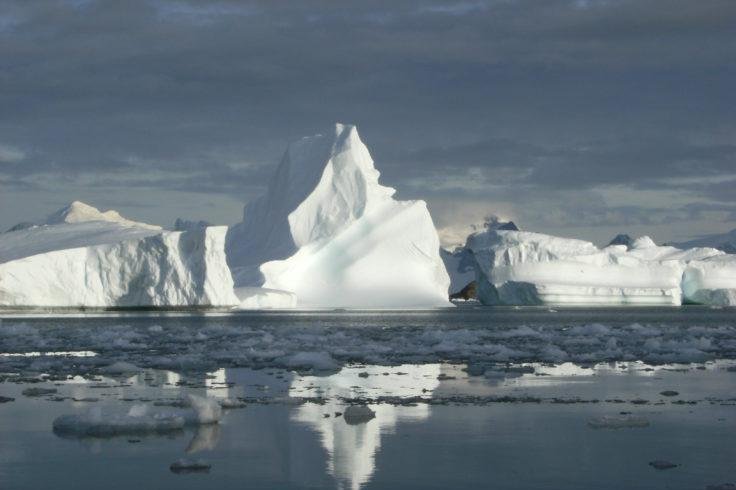Warming ocean water is responsible for retreating glaciers on the Antarctic Peninsula. Glacial retreat and melting encourages calving, the breaking off of icebergs like one seen here in Marguerite Bay. Photo by the British Antarctic Survey
SWANSEA, Wales, July 14 (UPI) -- For the first time, research has established ocean warming as the primary cause of glacial retreat on the western Antarctic Peninsula.
The meltwater runoff from shrinking glaciers on the Antarctic Peninsula is accelerating sea level rise. But until now, scientists thought warming air temperatures were the main driver.
Analysis of glacial retreat and ocean temperature patterns prove that's not the case.
"Glaciers here are extremely diverse and yet the changes in their frontal positions showed a strong regional pattern," Alison Cook, a scientist at Swansea University, explained in a news release.
"We were keen to understand what was causing the differences, in particular why the glaciers in the north-west showed less retreat than those further South and why there was acceleration in retreat since the 1990s," Cook said. "The ocean temperature records have revealed the crucial link."
Roughly 90 percent of the 674 glaciers on the Antarctic Peninsula have retreated since record-keeping began in the 1940s. But not all glaciers have retreated at the same rate. The retreat of those on the western side of the peninsula, especially those facing south, has accelerated since the 1990s.
Ocean temperature data revealed water at medium depths toward the southern tip of the Peninsula has been rapidly warming since the 1990s, whereas the warmest water to the north is found much deeper.
"Where mid-depth waters from the deep ocean intrude onto the continental shelf and spread towards the coast, they bring heat that causes the glaciers to break up and melt," said Mike Meredith, a researcher with the British Antarctic Survey. "These waters have become warmer and moved to shallower depths in recent decades, causing glacier retreat to accelerate."
Researchers published their findings this week in the journal Science.
"We have known the region is a climate warming hotspot for a while, but we couldn't explain what was causing the pattern of glacier change," concluded Tavi Murray, head of the Glaciology Research Group at Swansea. "This new study shows that a warmer ocean is key to understanding the behaviour of glaciers on the Antarctic Peninsula."















